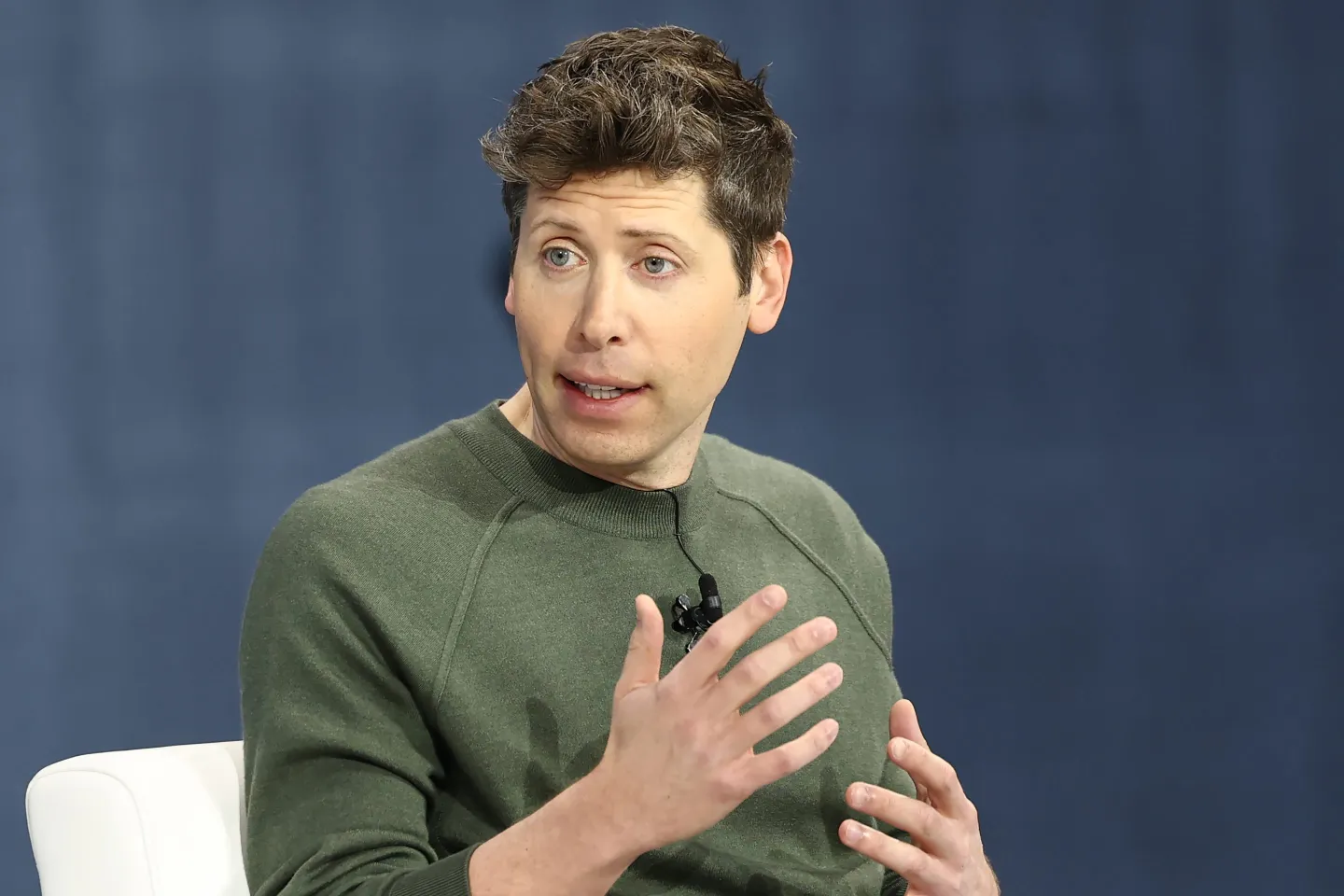A Visionary Perspective on Artificial Intelligence
Sam Altman, the CEO of OpenAI, has never shied away from making bold forecasts about the future of artificial intelligence. In a 2025 interview with Business Insider, Altman shared his latest thoughts on how AI could fundamentally reshape the world. His AI predictions range from redefining work to expanding global wealth and even questioning the role of governments in regulating these powerful technologies.
The Sam Altman AI predictions are not mere speculation — they are grounded in the ongoing evolution of generative AI systems like ChatGPT, which already assist millions in writing, coding, researching, and more. According to Altman, the potential of these systems goes far beyond current applications. He sees AI becoming an economic driver that could surpass the industrial revolution in scale and impact.
These forecasts are stirring discussion in both Silicon Valley and policy circles, as leaders attempt to grasp what an AI-augmented society could look like — and how to prepare for it responsibly.
Economic Transformation Through Intelligence at Scale
One of the central themes of Sam Altman’s AI predictions is the idea that artificial general intelligence (AGI) could unlock unprecedented economic growth. Altman believes that as AI systems become more capable, they will dramatically increase productivity across industries — from healthcare and education to software engineering and logistics.
Altman argues that with enough compute power and model refinement, AGI will act as a global “knowledge worker,” able to perform tasks that currently require specialized human labor. This could significantly lower the cost of expertise and make high-quality services accessible to billions of people.
For example, AI doctors and tutors could serve rural populations that currently lack human professionals. In manufacturing, AI could optimize supply chains, reduce waste, and accelerate innovation. Altman predicts that the resulting economic surplus will not only increase GDP but also shift wealth distribution patterns — if governments and institutions adopt the right frameworks.
However, these changes will not come without friction. Altman acknowledges that job displacement is a real concern. While AI may create new categories of work, the transition will require strong policy responses, reskilling programs, and perhaps even new social contracts such as universal basic income.
This ties into another of his key AI predictions: the idea that wealth generated by AI could enable societies to provide better safety nets and redefine the meaning of work itself — not as a necessity for survival, but as a pursuit of purpose.
Ethical Challenges and Global Governance
With great power comes great responsibility, and Sam Altman’s AI predictions also highlight the growing need for governance. Altman has long advocated for cautious, thoughtful AI development, and in his 2025 outlook, he reiterates the importance of international coordination.
He warns that as AI becomes more autonomous and capable, the risk of misuse increases. From algorithmic bias to disinformation, and even to more severe hypothetical scenarios like AI systems acting independently of human oversight, Altman urges both developers and governments to work together in establishing safeguards.
In this context, Altman has supported initiatives like the OpenAI Charter, which outlines principles of safety, transparency, and public benefit. He believes that AI labs should collaborate on safety research and share best practices, rather than race toward deployment in isolation.
Moreover, Altman suggests that future AI models might need to be licensed or audited by global institutions, similar to how nuclear technology is monitored. This kind of AI regulation could help prevent nationalistic misuse or market concentration that harms innovation and equity.
Despite his concerns, Altman maintains a fundamentally optimistic view. He believes that if humanity gets it right, AI can be a force multiplier for human values, creativity, and progress.
Redefining the Role of Humanity in an AI Age
Beyond economics and governance, Sam Altman AI predictions also venture into philosophical territory. One of the more striking statements from his recent interview is that “AI will change what it means to be human.” According to Altman, as machines take over more cognitive tasks, humans will have the opportunity — and perhaps the necessity — to focus on creativity, relationships, and purpose.
He foresees a future in which individuals are liberated from repetitive labor and have more time to explore arts, sciences, and personal development. In his view, education systems will need to evolve, emphasizing critical thinking and emotional intelligence over rote learning. Altman also believes that society will place greater value on uniquely human traits like empathy, ethics, and imagination.
However, this vision is not guaranteed. Altman stresses that ensuring a positive outcome requires intentional design: how AI is integrated into everyday life, who controls it, and how benefits are distributed will all play a role in shaping the future.
One of the boldest AI predictions he offers is that AI could help solve some of the most difficult global challenges, including climate change, disease, and energy scarcity. If used responsibly, AI could optimize resource allocation, accelerate scientific research, and improve policymaking through simulations and data-driven insights.
Conclusion: Preparing for an AI-Driven Future
The Sam Altman AI predictions present a compelling case for why society must begin preparing for a future in which artificial intelligence plays a central role in every domain of life. From transforming economies to reshaping education and redefining identity, the possibilities are vast — and so are the responsibilities.
Whether his predictions fully materialize or only partially come true, they offer a valuable roadmap for leaders, educators, entrepreneurs, and citizens alike. The future Altman describes is one that rewards proactive planning, ethical reflection, and collaboration on a global scale.
As the CEO of one of the world’s most influential AI companies, Altman’s views carry weight. His message is clear: we are at a turning point, and the choices made today will determine whether AI becomes a source of progress or peril.
Read More






 Monday, 09-02-26
Monday, 09-02-26







